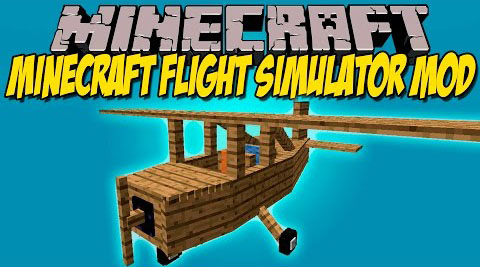
Realistic flight in Minecraft has never really been implemented. Even the elytra doesn’t take into account true aerodynamics. Minecraft Flight Simulator aim to change all this, by introducing planes that handle like actual planes. To do this physics and aerodynamics are used, taking into account thrust, drag, lift, prop pitch, and much more. Controls are also tailored to provide a simpler means of controlling planes than the current mouse-yoke standard, which allows you to look around as you fly. You can even customize your planes by giving them different propellers and engines, which affect their flight characteristics.
Features:
- Realistic handling of planes makes flight much simpler. Planes can be put in circular holding patterns and will climb on their own power.
- All rotating parts do so at the correct speeds. No slow-moving propellers here!
- Multi-entity planes allows for accurate collision detection and breaking of parts during rough landings.
- Plane components like engines and propellers can be customized to create hundreds of unique planes, each with their own capabilities.
- Unique camera system makes it so you can fly a plane and look around at the same time.
- Crafting recipes are material sensitive; seats take the color of the wool used to craft them, and the MC-172 take the type of wood as its texture.
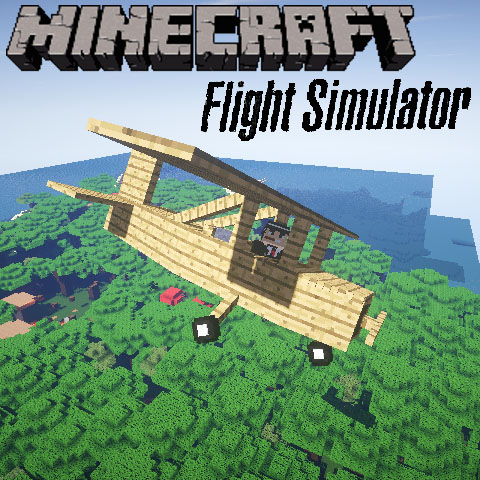
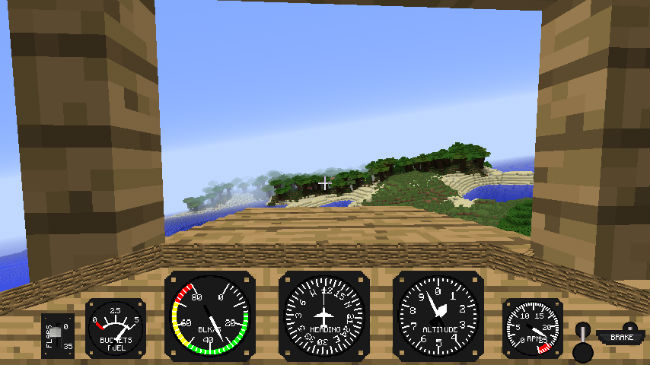
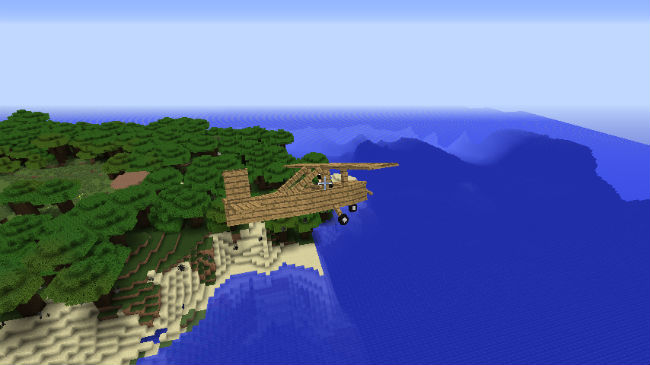
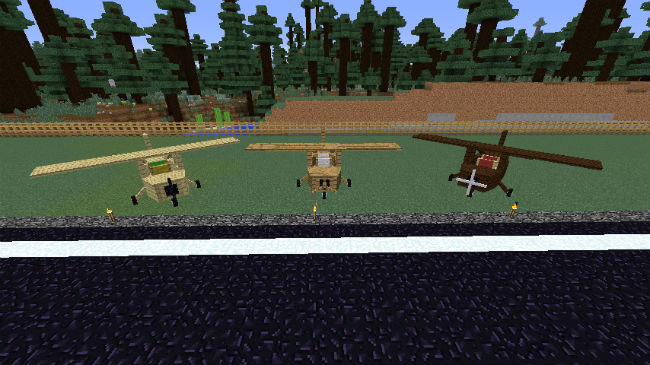
Crafting planes and components is easy! Just use these recipes. Note that any recipe with a TS at the end of the name indicates that it is type-sensitive, and must be crafted with parts of the same type. This means that you can’t mix and match wood types with a TS recipe. You can, however, use ANY type of that material in the recipe, which influences its outcome. One example is the MC-172, which must be made with only one kind of wood, but takes the texture of that wood when crafted.
MC-172(TS)
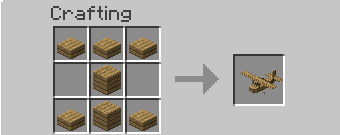
Seat(TS)
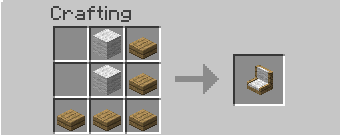
Wooden propeller
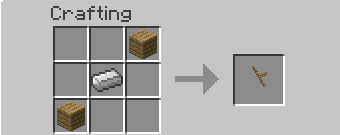
Iron propeller
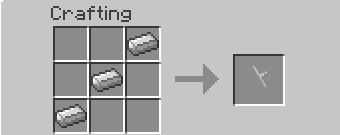
Obsidian propeller
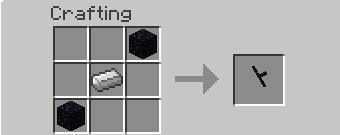
Small Wheel (any wool)
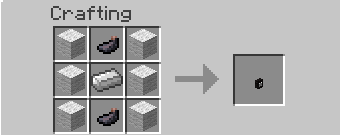
Small Engine (1.0 fuel per tick @2800 RPM)
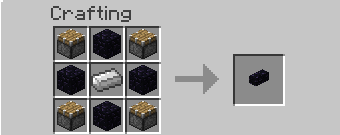
Small Engine (1.2 fuel per tick @3000 RPM)
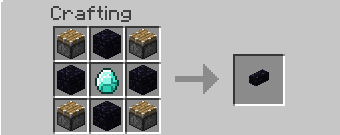
If you want to create a custom propeller or engine, you’ll need to know about their codes. When you use the give command you’ll need to input the code as the item’s damage value. Propellers are specified using a four-digit code number that defines their properties. The first digit is how many multiples of five the propeller’s diameter is above 70. The second specifies how many multiples of three the pitch is above 55 degrees. The third is how many blades the propeller has, while the fourth is the material code, with 0 standing for wood, 1 for iron, and 2 for obsidian. This means that the standard propeller for a MC-172 is an 1120, or 70+5*1=75in diameter, 55+3*1=58in pitch, 2 blade wooden propeller. Similarly, a 4241 would be a 90in diameter, 67in pitch, 4-blade iron propeller.
Engines are a bit simpler, in that they have only two parameters. The first two digits times 100 plus 1000 is the engine’s maximum RPM, while the last two digits divided by ten plus 1 is the fuel consumption per tick. This means that the basic small engine (1.0@2800RPM) has a code of 1800, while the advanced small engine (1.2@3000RPM) has a code of 2002. Remember that the fuel consumption is based on the engine spinning at the maximum RPM; the 1.2@3000RPM engine uses only 1.12 units of fuel per tick at 2800RPM.
Controls:
- W: Pitch down
- S: Pitch up
- A: Roll left
- D: Roll right
- I: Increase throttle
- K: Decrease throttle
- J: Yaw left
- L: Yaw right
- Y: Flaps up
- H: Flaps down
- B: Brake (disables parking brake)
- RIGHT_SHIFT+B: Engage parking brake
- M: Start engine – you can also hit the propeller until the engine starts
- RIGHT_SHIFT+M: Stop engine
- PG_DOWN: Zoom out
- PG_UP: Zoom in
- RIGHT_CONTROL: Toggle camera auto-follow
Pre-flight checklist:
Before you go flying, there’s a few things you should know:
- If you need to access the plane’s GUI, just shift-right-click the center of the plane.
- Planes require fuel to fly. Currently their internal combustion engines run on liquid lava, which can be inserted into the fuel tank by opening the GUI and placing a bucket of lava into the slot with the gas pump icon. If the bucket doesn’t fill it means that the fuel tank is full, or there’s no room for the empty bucket in the adjacent slot. Each bucket provides 1000 units of fuel.
- Should you run out of fuel during flight, don’t panic! Planes can glide for a long way even without power.
- Remember that the faster the engine is running, the more fuel it consumes. When you get up to your desired altitude you can let off the throttle to conserve fuel. This doesn’t result in much of a speed loss, and makes flying much more fluid.
- Flaps are used for takeoff and landing. 10 degrees is customary for takeoff, while landings can use as much flap as necessary to slow down. Make sure to remove the flaps after takeoff, as they slow you down and increase drag.
- Braking force depends on how many wheels you have on the ground. Landing crooked is not advised as it reduces the effectiveness of your brakes. Also note that planes won’t turn on the tarmac well unless all wheels are down, so keep that in mind when speeding on taxiways.
How to install:
- Download and install Minecraft Forge.
- Download the mod.
- Go to %appdata%.
- Go to .minecraft/mods folder.
- If the “mods” folder does not exist you can create one.
- Drag and drop the downloaded jar (zip) file into that.
- Enjoy the mod.

![[1.9] Flight Simulator Mod Download](https://planetaminecraft.com/wp-content/uploads/2016/01/295e9__Flight-Simulator-Mod-31-130x100.jpg)